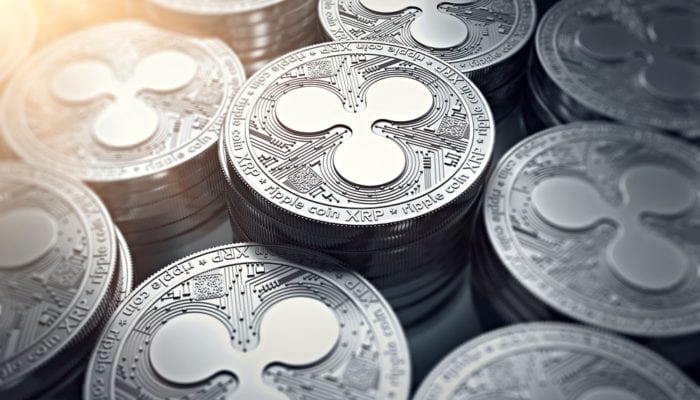
What could be called as another act of love from the Chief Technology Officer at Ripple, David Schwartz has published a post on the Ripple’s website showcasing the inherent decentralization of the XRP ledger.
David Schwartz openly displays his unbound love and trust for blockchain technology and XRP. An active Twitterati Schwartz regularly responds to queries about the Ripple technology as well as the future direction of the project. In fact, Cory Johnson, the Chief Market Strategist at Ripple teased Schwartz with a new title of Chief Tweeter; during a recent Ask Me Anything session with Brad Garlginhouse.
In the post, Mr. Schwartz states :
Bitcoin and Ethereum are currently viewed as the gold standard for decentralization… Since these blockchains are considered decentralized, then by design, the XRP Ledger is also — if not more so — decentralized than both Bitcoin and Ethereum.
The CTO further describes the Proof-of-Work for both Bitcoin and Ethereum as a good starting point for a decentralized system by giving miners incentives to validate transactions. Though, in the long run, centralized control could take over the blockchains on the proof-of-work system. As a result, a few miners might have a significant control over the system. He goes on to explain how XRP ledger does the opposite. In his words:
The XRP Ledger uses a consensus protocol that relies on a majority of validators to record and verify transactions without incentivizing any one party (this is one of the main reasons why I began working on XRP Ledger more than six years ago). Validators are different from miners because they aren’t paid when they order and validate transactions.
He concludes the argument by saying:
Put simply, the XRP Ledger is based on an inherently decentralized, democratic, consensus mechanism — which no one party can control.
Schwartz explains that the miners on the BTC and ETH networks want the transaction cost to enable more rewards for validating transactions. This inevitably drives up the cost of each transaction leaving the digital asset less attractive to real-world use cases such as payments. He further explains how XRP ledger is different:
The XRP Ledger encourages the opposite behavior. Those using XRP and the XRP Ledger are able to make progress without mining, saving significant compute power and time. Also, a built-in system, called fee escalation, is part of its consensus protocol and helps to regulate fees overall. This means lower costs and faster transaction times for XRP compared to other digital assets — the attributes that make it the most useful asset for settlement.
Read more: Ripple’s XRP And Its Tech Might Be One of The Best Bet For Amazon
Lastly, Schwartz points out that in the case of Bitcoin and Ethereum, 4 mining groups control 58% of the Bitcoin network and 3 miners account for 57% of Ethereum’s capacity. The concentration of powers with these groups could disrupt the system if even a small number of miners decide to conspire. He noted that though China has banned cryptocurrency, 80% of all Bitcoin mining is located in the country. BTC and ETH thus pose a potential risk of manipulation.
As for XRP ledger, Schwartz explains that 80% of all validators on the XRP ledger are required on the entire network over a 2 week period to continuously support a change before it is applied. Out of the approximately 150 validators, Ripple only runs 10: a far lesser percentage to impose a change on the network.
David Schwartz concludes the post by presenting facts that prove XRP ledger more decentralized than those of Bitcoin and Ethereum. The crypto-community, with time, might realize XRP’s potential as one of the fastest and most reliable digital assets.
Read more: CTO of Ripple hints a possible alliance with American Express
Keep in mind that we may receive commissions when you click our links and make purchases. However, this does not impact our reviews and comparisons. We try our best to keep things fair and balanced, in order to help you make the best choice for you.